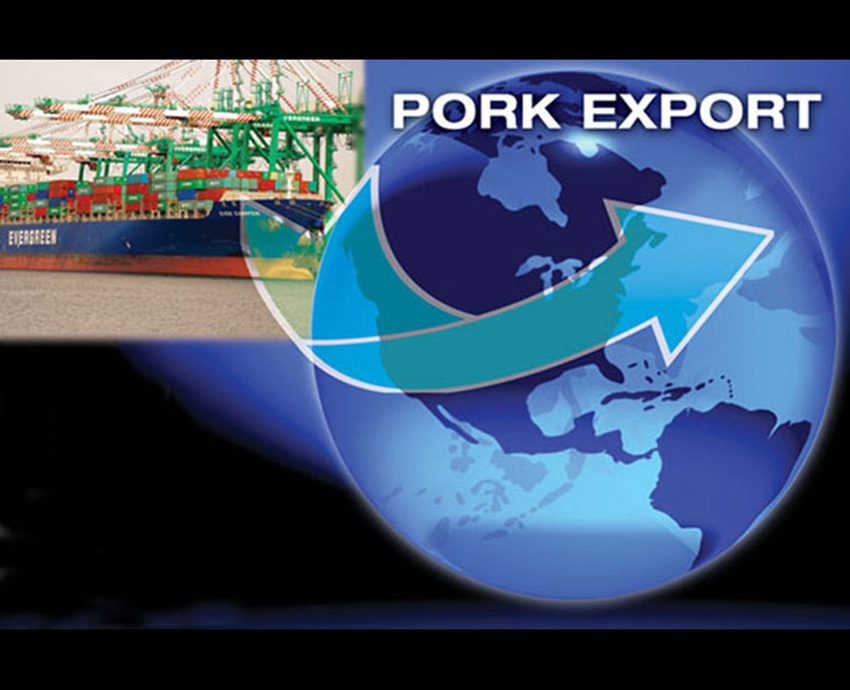Trade deals that the United States is not a part of could spell doom for the U.S. economy and the country’s pork industry.

There has been a lot going on this week with school shootings, the passing of the Rev. Billy Graham, the winter Olympics — a lot of good, but way too much bad.
Here are a few items that crossed my desk, but may have crept under your radar. They show a glimmer of good news.
From the weekly newsletter of the Manitoba Pork Council, George Matheson, MPC chairman from Stonewall, Manitoba, shared these thoughts under the headline: Trade advocacy amid disquiet.
“It was just over 12 years ago that Manitoba Pork’s General Manager Andrew Dickson had a conversation with his Iowa Pork counterpart on how to improve relations between Canadian and U.S. pork producers. Manitoba Pork’s concern at the time was a result of a recent U.S. trade challenge which had falsely accused Canadian pork producers of receiving government subsidies and, therefore, having an unfair advantage. Our innocence was upheld, but not until after a long and costly court case.
“At the time, the suggestion was made that the Canadian pork sector needed to put a ‘face’ on the industry, and Manitoba Pork was encouraged to attend the Iowa and Minnesota Pork Congresses held every January in their respective states. Every year since that discussion, that is exactly what we have done.
“In January 2018, a delegation of four from Manitoba Pork, comprised of me, another board director and staff, attended the two state congresses. There we hosted a breakfast for the state’s pork board of directors, staffed our display booth on the trade show floor, and met with various government agricultural officials. It was an act of diplomacy to lift the veil off any uncertainties our U.S. counterparts may have in regard to the Canadian pork sector.
“In return, representatives from Minnesota and Iowa will attend our annual general meeting on April 5 and further strengthen the relations between the two countries.
“As much as anything, our January trade advocacy trips to the United States are goodwill missions that, with the assistance of the Canadian Consul, take a fair bit of coordination and financing to pull off. In my estimation, they are well worth the expense and effort. And, not surprisingly, over the years both sides have discovered that our two countries enjoy an integrated industry with many of the same issues.”
I realize that the North American Free Trade Agreement is bigger than the U.S. and Canadian pork industries, and bigger than the agriculture industries of both countries, but as you see we do have a valued ally to the north.
Speaking of trade, the National Pork Producers Council’s “Capital Update” included this little nugget that U.S. Senators are urging President Trump to re-engage on Trans-Pacific Partnership talks.
Twenty-five Republican Senators late last week sent a letter to the president urging him to re-engage the United States in what is now known as the Comprehensive and Progressive Agreement for Trans-Pacific Partnership.
The senators stressed the potential for TPP to unleash the full potential of the U.S. economy and expand export market share.
One of President Trump’s first official items of business, when he took office last January, was to withdraw from the agreement. Under terms of the agreement, for example, TPP would have dramatically reduced tariffs on U.S. pork based on Japan’s “gate price system.” The CPTPP was finalized Wednesday following a series of negotiations between TPP’s 11 remaining member nations and is scheduled to be signed in March.
The NPPC supports bilateral and multilateral trade agreements that expand export opportunities for U.S. pork. Absent these agreements, U.S. pork will lose market share in Japan and other high-growth Asia-Pacific countries.
Similar to NAFTA, the TPP, or whatever name it goes by, is important for U.S. pork and U.S. agriculture, not only because the United States currently is not a participant, but also because of who is.
Any trade deal that does not include the United States, but does include our trade competitors, will make our economy fall behind in the global marketplace. Excuse me for being a “Debbie Downer,” but that would mean more bad news for the U.S. economy and the U.S. pork industry.
About the Author(s)
You May Also Like



